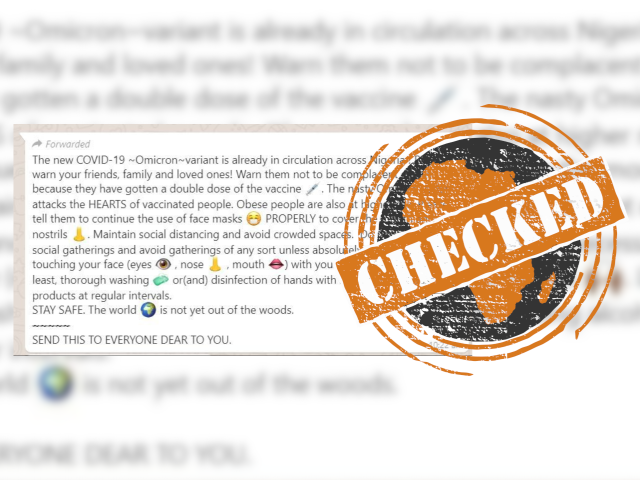A drink made with fruit puree, wheat grass, barley grass, spirulina and green algae sounds like a healthy way to start the day. But a post on Facebook claims a brand of smoothies and juices being sold in Nigeria is “poison”.
The attached picture shows a number of drinks from Evolution Fresh, an American cold-pressed juice and smoothie company. It urges people not to buy the drinks and to send the warning to family and friends.
Fact-checking website Snopes debunked the warning in February 2017. They found no evidence of the drink being sold in Nigeria or of it being poisoned.
It’s possible that the hoax is based on 2013 reports that alleged a woman had tried to plant Evolution Fresh orange juice bottles contaminated with rubbing alcohol in a Starbucks coffee shop in America.
Charges were eventually dropped after tests revealed the substance in the juice was vinegar. Prosecutors said they couldn’t determine if the substance had occurred naturally in the juice or if it had been added. - Africa Check (28/01/19)
The attached picture shows a number of drinks from Evolution Fresh, an American cold-pressed juice and smoothie company. It urges people not to buy the drinks and to send the warning to family and friends.
Fact-checking website Snopes debunked the warning in February 2017. They found no evidence of the drink being sold in Nigeria or of it being poisoned.
It’s possible that the hoax is based on 2013 reports that alleged a woman had tried to plant Evolution Fresh orange juice bottles contaminated with rubbing alcohol in a Starbucks coffee shop in America.
Charges were eventually dropped after tests revealed the substance in the juice was vinegar. Prosecutors said they couldn’t determine if the substance had occurred naturally in the juice or if it had been added. - Africa Check (28/01/19)
Republish our content for free
For publishers: what to do if your post is rated false
A fact-checker has rated your Facebook or Instagram post as “false”, “altered”, “partly false” or “missing context”. This could have serious consequences. What do you do?
Click on our guide for the steps you should follow.
Publishers guideAfrica Check teams up with Facebook
Africa Check is a partner in Meta's third-party fact-checking programme to help stop the spread of false information on social media.
The content we rate as “false” will be downgraded on Facebook and Instagram. This means fewer people will see it.
You can also help identify false information on Facebook. This guide explains how.





Add new comment